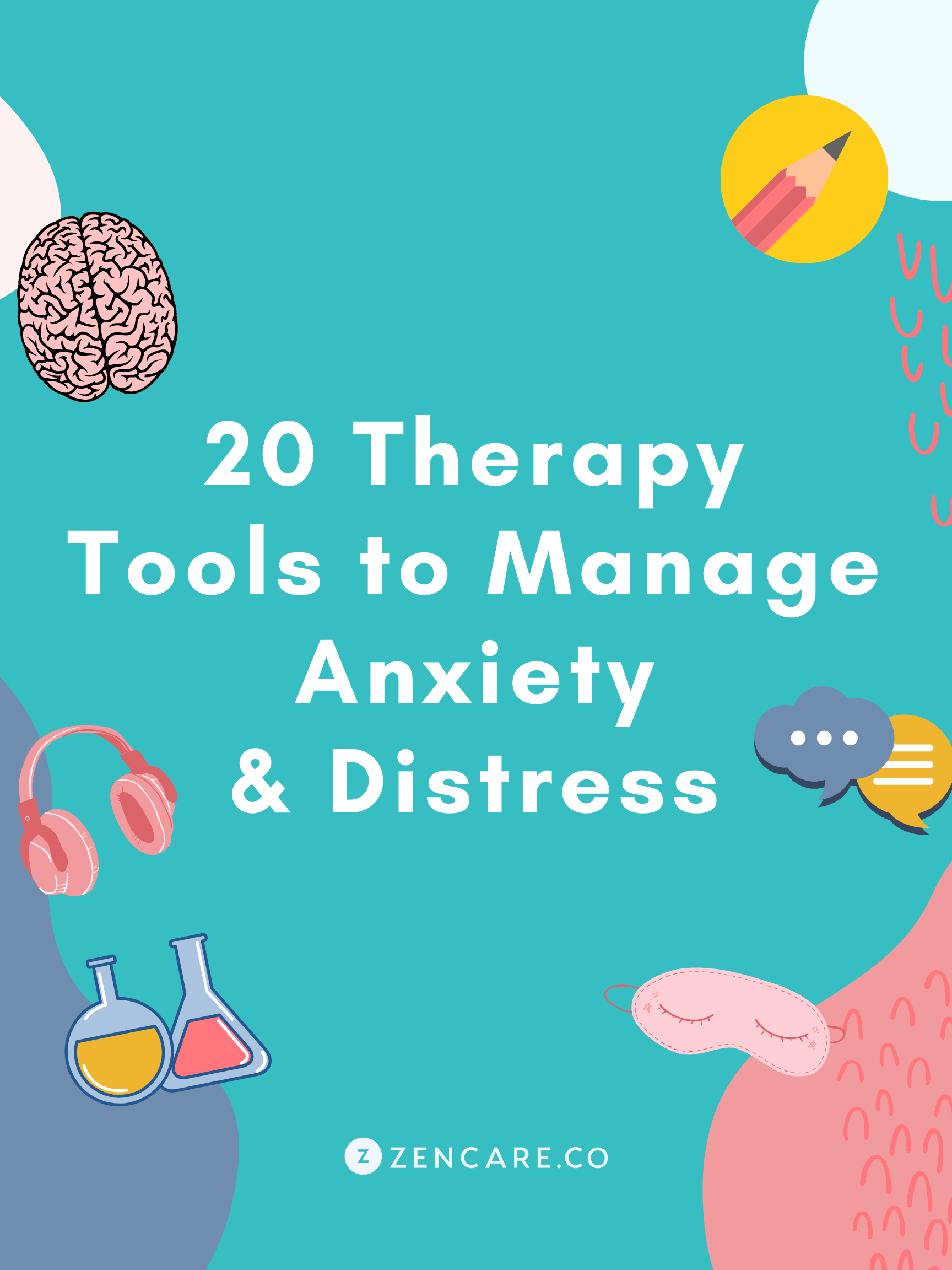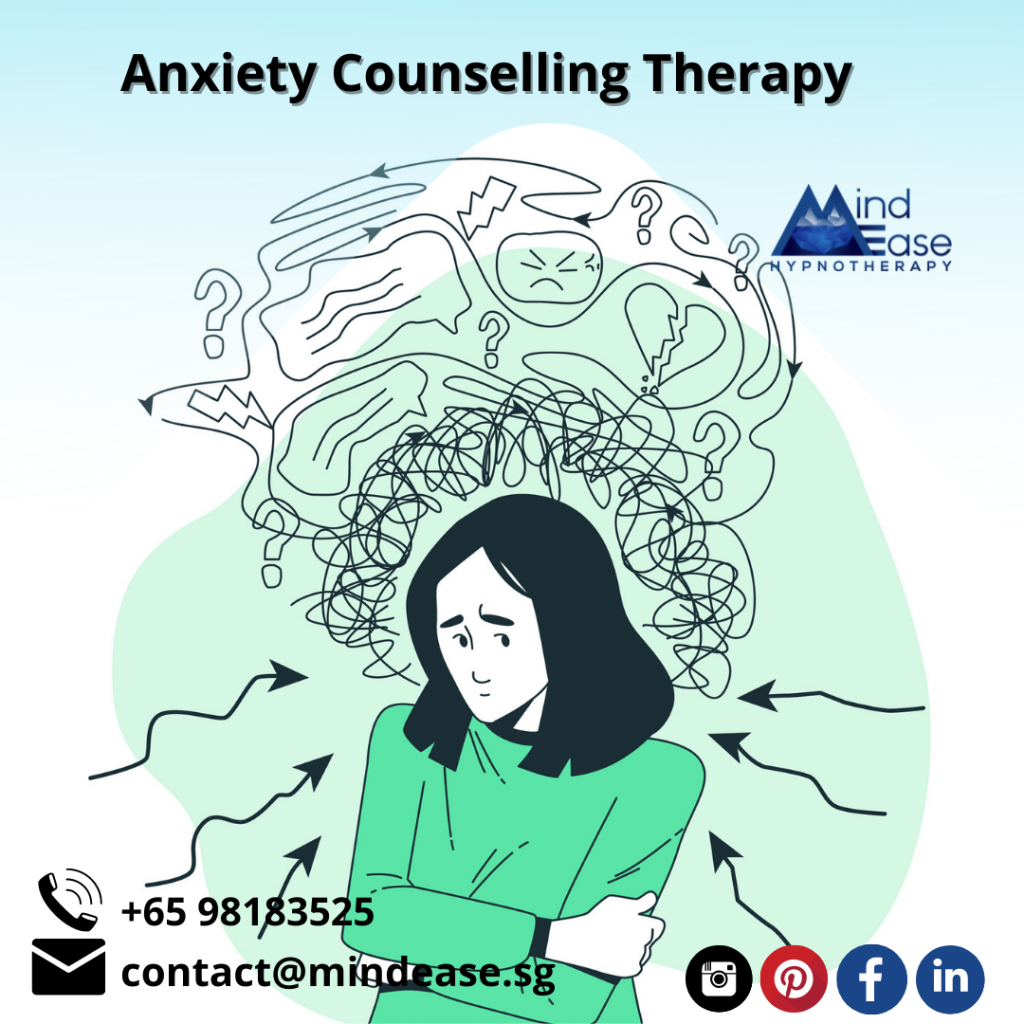Get started for professional counselling for anxiety services
Get started for professional counselling for anxiety services
Blog Article
Checking Out Various Approaches in Therapy for Stress And Anxiety Condition for Long-term Change
When tackling anxiousness conditions, it's important to check out a variety of therapy techniques. Each approach offers one-of-a-kind insights and tools to aid you handle your signs properly. You might locate that incorporating strategies can yield the most effective results. Understanding the nuances of these strategies is key to fostering lasting adjustment. What if the appropriate combination could launch a new degree of psychological wellness for you?
Comprehending Anxiousness Problems: A Quick Review
Stress and anxiety disorders, which influence countless individuals worldwide, can considerably influence every day life. You may experience overwhelming feelings of worry or fret that seem irrepressible. These sensations can cause physical signs and symptoms like a racing heart, sweating, or even dizziness. Common kinds of stress and anxiety problems include generalized stress and anxiety problem, panic problem, and social anxiousness condition. Each has one-of-a-kind signs, however they all share a tendency to disrupt your regular and relationships.Understanding the origin triggers of your anxiety is important. It could come from genetics, mind chemistry, or life experiences. Recognizing your triggers can assist you manage your reactions better. It is very important to keep in mind that you're not the only one in this battle. Many individuals deal with similar challenges, and seeking help is a strong action toward sensation better. By finding out concerning anxiousness conditions, you're already on the path to understanding and handling your problem better.
Cognitive-Behavioral Therapy: Testing Adverse Idea Patterns
In Cognitive-Behavioral Treatment, you'll begin by recognizing the negative thought sets off that add to your anxiousness. You'll function on changing them with more positive options when you recognize these thoughts. Together, you'll construct effective coping approaches to assist handle your anxiety in day-to-day circumstances.
Determining Adverse Thought Triggers

Recognizing the specific triggers behind your negative thoughts can be necessary in taking care of anxiousness when you run into moments of distress. Begin by paying interest to circumstances that prompt feelings of worry or concern. Is it a jampacked room, a forthcoming deadline, or a conversation with certain individuals? Take down these circumstances in a journal. This will certainly help you recognize patterns in your thinking. Notice physical experiences that accompany your adverse thoughts, like an auto racing heart or tightness in your chest. By identifying these triggers, you obtain insight right into what's fueling your anxiousness. Recognizing these links is the primary step in challenging those ideas and inevitably reclaiming control over your emotional actions.
Changing Ideas With Positives
Challenging unfavorable idea patterns is an essential action in transforming your way of thinking and decreasing anxiousness. You may typically discover on your own trapped in cycles of insecurity or tragic reasoning. As opposed to allowing these thoughts dictate your sensations, method changing them with reasonable alternatives or positive affirmations. As an example, when you think, "I can't manage this," shift it to, "I can take care of obstacles one step at once." This straightforward adjustment can substantially affect your emotional state. Frequently recognizing and responding to these negative thoughts helps develop a much healthier interior dialogue. Remember, it takes some time and initiative, yet constantly exercising this method can result in long-term change, encouraging you to encounter stress and anxiety with renewed self-confidence and resilience.
Building Coping Methods Together
Replacing negative ideas is only the start of managing anxiety efficiently. To create long lasting adjustment, you need to build coping methods that encourage you. Cognitive-Behavioral Treatment (CBT) helps you identify and challenge those unhelpful thought patterns. Together, you and your counselor can explore exactly how these thoughts influence your feelings and behaviors.Start by creating practical techniques, like journaling or mindfulness workouts, that enable you to confront anxiety head-on. When you encounter your worries gradually, you'll learn to react differently.

Mindfulness and Acceptance-Based Approaches: Cultivating Present-Moment Recognition
As you navigate the complexities of anxiousness, integrating mindfulness and acceptance-based approaches can significantly boost your capability to cultivate present-moment awareness. By concentrating on the present moment, you'll find that you can observe your ideas and feelings without judgment (Counseling services for anxiety). This practice helps you recognize your stress and anxiety without feeling overwhelmed by it.Engaging in mindfulness exercises, such as deep breathing, body scans, or guided reflections, permits you to ground on your own in your present experience. Acceptance-based approaches motivate you to welcome your emotions as opposed to fight versus them. They lose their power over you.Incorporating these methods into your everyday routine can change how you react to anxiousness when you accept your sensations. You'll establish strength and learn to browse stressful circumstances with better simplicity. Ultimately, growing present-moment recognition lays the foundation for enduring modification, empowering you to lead a much more satisfying life
Exposure Therapy: Facing Concerns Gradually
Exposure treatment helps you confront your fears in a steady way, making it less frustrating. You'll learn methods to encounter anxiety-provoking situations step by step, while additionally developing coping methods to handle your reactions. This approach equips you to take control and reduce stress and anxiety in time.
Steady Exposure Methods

When facing anxiety, gradually challenging your concerns can be a powerful means to gain back control. This method, understood as steady direct exposure, entails slowly revealing yourself to the situations or objects that trigger your anxiousness. Beginning with less intimidating scenarios and progressively work your means as much as even more challenging ones. For instance, if you're terrified of public talking, you might begin by speaking in front of a mirror, after that advance to sharing thoughts with a friend, and ultimately address a little team. Each action helps desensitize you to the worry, constructing your confidence gradually. Keep in mind, it's vital to speed on your own and commemorate little success as you move via this process, strengthening your ability to handle anxiety properly.
Structure Coping Approaches
Building effective coping techniques is crucial for managing stress and anxiety, particularly as you confront your concerns gradually - Counseling services for anxiety. One powerful method is direct exposure treatment, where you start by facing your anxieties in a controlled way. Start with much less daunting scenarios and slowly function your means approximately even more tough circumstances. This progressive exposure helps desensitize you to stress and anxiety causes, making them less overwhelming.Incorporate relaxation strategies, such as deep breathing or mindfulness, to relax your mind throughout direct exposure. Track your progression, celebrating small victories in the process to boost your self-confidence. Remember, it's fine to take your time; the objective isn't excellence yet steady improvement. By constructing these approaches, you'll equip yourself to navigate anxiety and welcome life much more totally
Psychodynamic Therapy: Uncovering Source of Anxiousness
Psychodynamic treatment explores the unconscious mind, disclosing the origin of your stress and anxiety. By examining your ideas, feelings, and previous experiences, this method assists you discover underlying conflicts and unsolved problems that might add to your present anxiousness. You'll function with a specialist to explore childhood years experiences, partnerships, and emotional patterns that shape your responses today.As you acquire understanding right into these deeper layers of your learn this here now subconscious, you'll begin to recognize just how previous events affect your existing behavior. This understanding can cause catharsis, permitting you to process feelings you could have suppressed.Through the restorative relationship, you can likewise recognize defense reaction that may have created with time, providing a more clear course to transform. Eventually, psychodynamic therapy equips you with the tools to address your anxiousness at its core, promoting lasting improvement in your emotional health.
Integrative and Alternative Methods: Combining Techniques for Greater Effectiveness
Incorporating different restorative strategies can enhance your journey towards taking care of anxiousness better. By integrating aspects from cognitive-behavioral treatment, mindfulness techniques, and all natural approaches, you can create a personalized technique that addresses your distinct demands. You may use cognitive-behavioral techniques to challenge negative idea patterns while including mindfulness workouts to ground yourself you can look here in the present moment.Additionally, checking out all natural techniques such as yoga exercise or meditation can promote relaxation and minimize anxiety signs. This blend allows you to develop greater self-awareness and resilience.Experimenting with these diverse techniques can help you uncover what reverberates most with you. Remember, it's about discovering a harmony that works, instead of sticking to a solitary strategy. This integrative method not only offers prompt alleviation but also cultivates long-term skills for handling anxiety, equipping you to reclaim control over your life.
The Function of Assistance Equipments: Structure Durability Via Connection
While it might seem that taking care of anxiousness is a singular journey, having a solid assistance system can play a necessary duty in your resilience. Surrounding on your own with understanding buddies, family members, or assistance groups creates a risk-free space where you can openly share your experiences and feelings. When you link with others, you remind yourself that you're not alone in this struggle.These relationships use motivation and can give functional coping techniques that have helped others. It's also an opportunity to get perspective; buddies can aid you see situations differently, minimizing sensations of isolation.Moreover, psychological assistance promotes a sense of belonging, which can considerably ease anxiousness symptoms. By leaning on your support system, you can construct resilience and take on difficulties better. Remember, getting to out for aid is a sign of toughness, and it can make all the distinction in your journey towards taking care of stress and anxiety.
Frequently Asked Questions
What Are the Common Signs of Stress And Anxiety Problems?
You could experience restlessness, tiredness, trouble concentrating, irritability, muscular tissue tension, and rest disturbances. Physical signs and symptoms can consist of quick heart beat, sweating, and trembling. Acknowledging these signs early can assist you look for proper support and treatment.
For How Long Does Therapy Usually Last for Anxiety Problems?
Treatment for stress and anxiety problems usually lasts anywhere from a few weeks to a number of months. It actually relies on your private needs, development, and the strategies your therapist makes use of to help you manage your anxiety efficiently.
Can Drug Be Utilized Along With Therapy for Anxiety?
Yes, medicine can certainly be made use of alongside therapy for anxiousness. Combining both strategies commonly boosts treatment efficiency, aiding you take care of symptoms while checking out underlying problems with therapy (Counseling services for anxiety). Always consult your doctor for tailored guidance
Are There Self-Help Strategies for Handling Stress And Anxiety?
Yes, there are numerous self-help techniques for handling anxiety. You can exercise mindfulness, take part in routine workout, keep a well balanced diet, develop a regular, and use deep breathing methods to help in reducing stress and anxiety signs and symptoms properly.
How Do I Know if I Need Specialist Aid for Stress And Anxiety?

Report this page